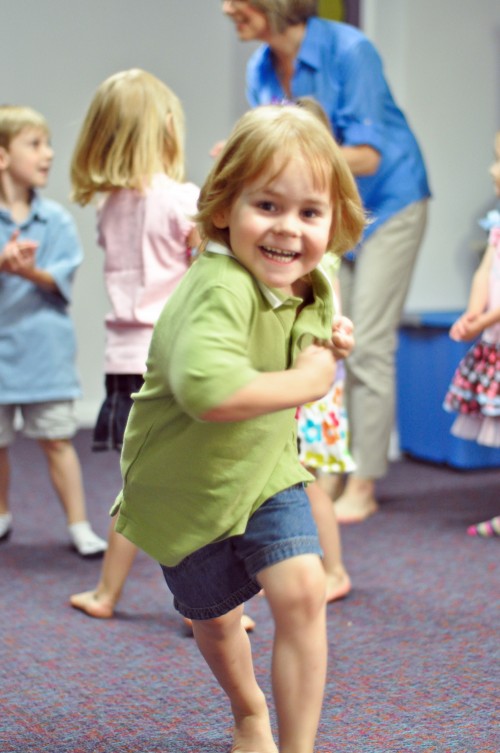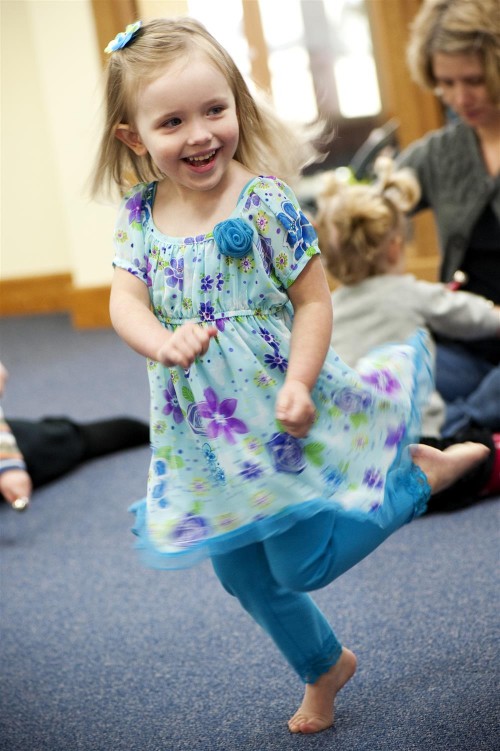F.M. Alexander, the founder of Alexander technique, was born in Tasmania in 1869, he lived in Australia, in the UK and in the US and improved many peoples’ lives across the globe, including famous actors, singers, etc., by teaching them how to move correctly, how to eliminate ineffective strain in movement habits. Those habits sit in us so deeply that we take them for granted.
So where is there a connection with Kindermusik, you may wonder? In fact, there is a deep underlying resemblance present between Kindermusik and Alexander’s principles. First of all, movement is the dominant category for both of them. Exploration through movement as well as freedom of movement and self-expression are the key factors of Kindermusik experience and so for Alexander’s technique. And of course, these methods are meant to bring happier and healthier lifestyles.
There are a lot of opportunities for the kids to move during Kindermusik lesson, whether it is a free dance, a circle dance, a creative movement, pretend play, even a song (!) or instrument exploration.
For me, as a Kindermusik teacher, it is an absolute joy to see how natural kids’ movements are, how flowing their dances are and with what ease they can perform it in class, in a familiarity of the classroom environment.
“The poise and freedom of movement shown by children is a natural ability often lost as they become older” p.208 “Secrets of Alexander Technique” by Robert MacDonald and Caro Ness.
Children naturally express zest for living through movement and in Kindermusik class we take care about it and aim to preserve it for their lifetime.
If you look at the way a three year old moves, you may notice her neck is straight and relaxed (not tilted back/forwards) and her head sits perfectly facing in front of her (not upwards/downwards), her back is naturally straight, no over-tightening, no slumping, and the front of the body is relaxed, as well. “Head-neck-back” position is the main point of interest in Alexander’s technique. It is very common that a lot of human’s problems are related to tensions in that area and to poor posture. Have you observed the way your young child moves? It can be a good idea to learn from our own kids how to move correctly in order to re-discover their ease of movement and freedom that we need sometimes. Did we mention, Kindermusik classes arre equally fun for kids and their parents?
To see what we do in our classes, book your free Kindermusik trial session here and see you soon!


